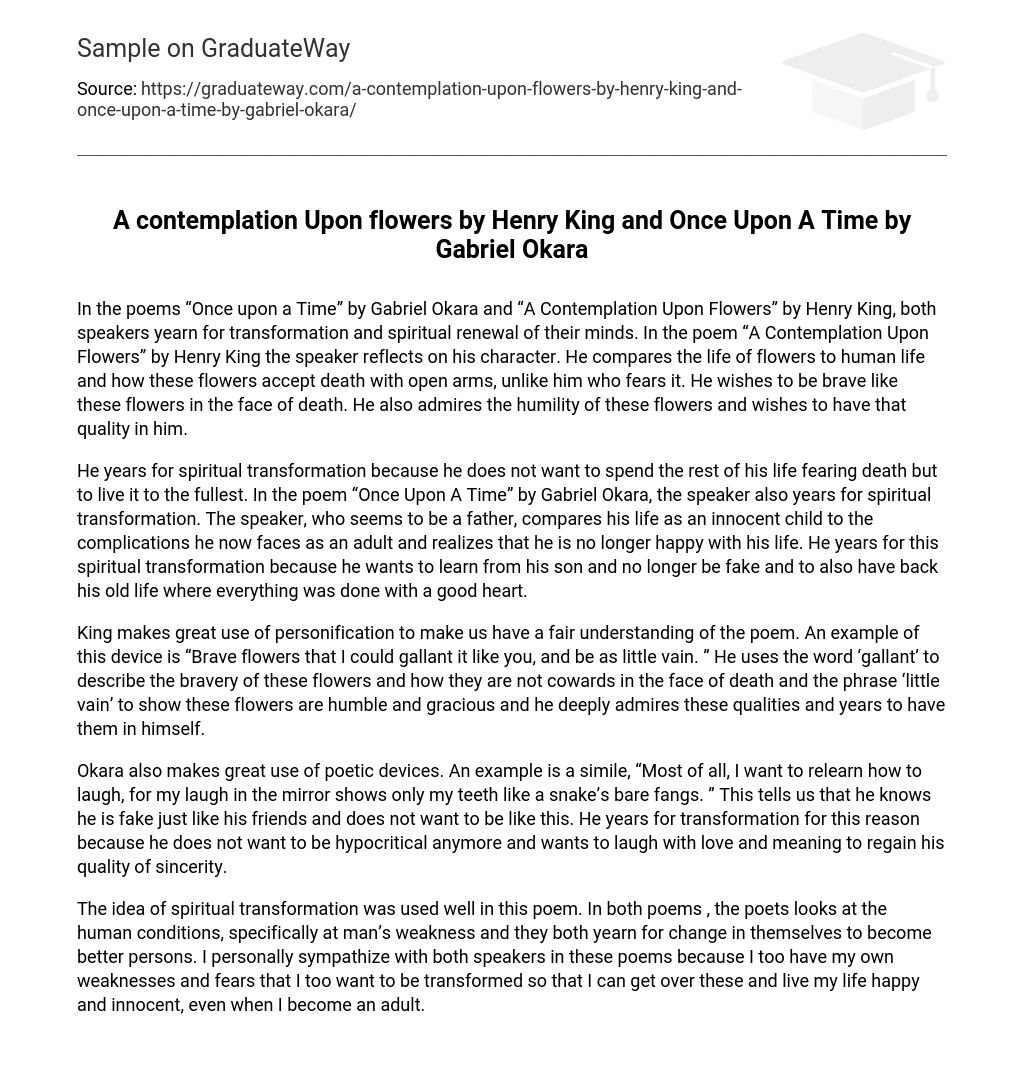Both the poems “Once upon a Time” by Gabriel Okara and “A Contemplation Upon Flowers” by Henry King express the speakers’ longing for personal growth and spiritual rejuvenation. In “A Contemplation Upon Flowers,” the speaker contemplates his own nature, drawing parallels between the lives of flowers and humans. The speaker admires the flowers’ acceptance of death without fear, unlike his own apprehension. He wishes to possess the same courage when confronting death. Additionally, the speaker appreciates the humility exhibited by flowers and aspires to embody this trait.
In the poem “Once Upon A Time” by Gabriel Okara, the speaker expresses their longing for spiritual transformation. They yearn for this transformation because they do not want to spend their remaining days consumed by the fear of death. Instead, they desire to live life to its fullest. The speaker, who appears to be a father, reflects upon their childhood innocence and compares it to the complexities that come with adulthood. They realize that their current existence is no longer fulfilling and they crave this spiritual transformation. Their desire stems from a wish to learn from their own child and shed their falseness. Additionally, they yearn to return to the days when their actions were guided by pure intentions.
King effectively employs personification to provide us with a profound grasp of the poem. A striking instance of this literary device can be found in the line: “Brave flowers that I could gallant it like you, and be as little vain.” Here, the term ‘gallant’ is utilized to characterize the courage of these flowers, highlighting their lack of fear in the presence of death. Additionally, the portrayal of these flowers as ‘little vain’ serves to exemplify their modest and gracious nature, which King greatly reveres and aspires to possess within himself.
Okara utilizes various poetic devices, such as similes, to convey his message. A simile employed by Okara asserts that, “Most of all, I want to relearn how to laugh, for my laugh in the mirror shows only my teeth like a snake’s bare fangs.” This comparison signifies his realization that he is living inauthentically, mirroring the actions of his insincere companions. Consequently, he desires transformation in order to escape this duplicity and regain the sincerity in his laughter, accompanied by genuine love and significance.
The concept of spiritual transformation was effectively employed in this poem. In both poems, the poets examine the human condition, particularly focusing on the weaknesses of individuals, and express a desire for personal growth and improvement. I personally relate to the speakers in these poems as I also have my own weaknesses and fears that I wish to overcome in order to lead a joyful and innocent life, even into adulthood.





